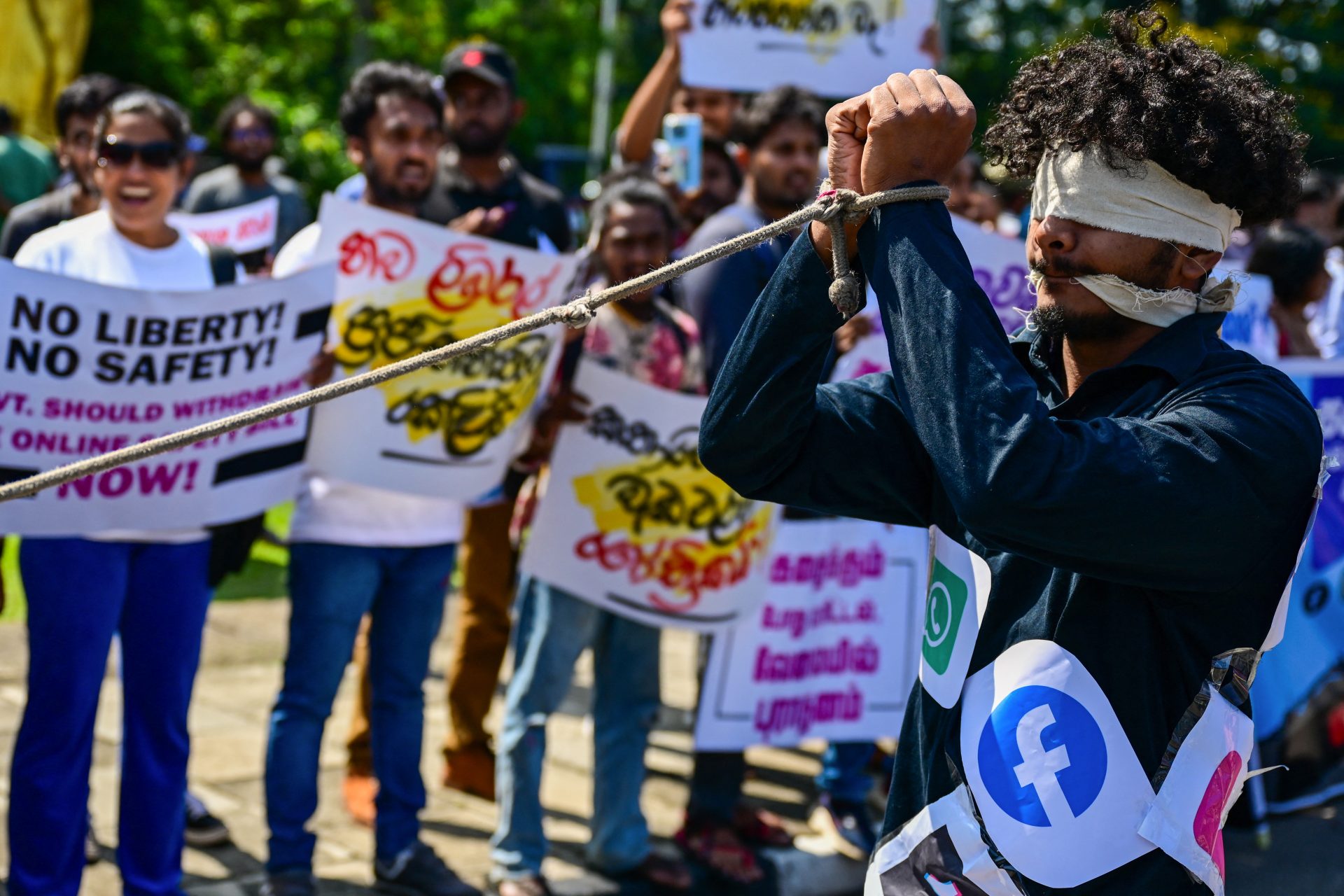The Sri Lankan Parliament has approved the bill regulating online content, sparking criticism from human rights groups and opposition politicians who say the government is trying to repress dissent and stifle freedom of speech because of the parliamentary and presidential elections due to be held later this year.
The measure was approved Wednesday with 108 votes in favor and 62 against.
According to the new regulation on online safety, content creators but above all citizens who publish material deemed “illegal” by a five-member commission will be punished with prison sentences.
This law also holds companies like Google, Facebook, and X (formerly Twitter) directly responsible for content posted on their platforms.
President Ranil Wickremesinghe’s government said the law, presented to parliament just a day before Wednesday’s vote, aims to combat cybercrime, including child abuse, data theft, and online fraud.
The country recorded 8,000 cybercrimes last year, said Public Security Minister Tiran Alles, who denied the legislation would impact free speech.
Human Rights Watch criticized the bill, warning that members of the newly formed Online Safety Commission would have arbitrary powers to “decide what online speech is ‘false’ or ‘harmful,’ remove content, restrict and ban access to the Internet and prosecute individuals and organizations.”
Offenses under the bill carry very large fines and prison sentences of up to five years, the international rights group added. MP Harsha de Silva told parliament the legislation was “a threat to our democracy”.
De Silva, MP from the main opposition party – Samagi Jana Balawegaya – said: “This law will have a serious negative impact on the digitalization and diffusion of electronic products in Sri Lanka, precisely at a time when we should be providing jobs for our youth and help our economy, which desperately needs growth.”
The Asian Internet Coalition (AIC), which also includes Apple, Amazon, Google, and Yahoo, warned that the bill is a “draconian way to stifle dissent” and that it “could undermine the potential growth of the economy digital of Sri Lanka.
We unequivocally support – add the global tech giants – our position according to which the law on online security, in its current form, is impracticable and would undermine potential growth and foreign direct investments in the country’s digital economy”.
The United Nations also condemned the president’s “improper use of emergency measures,” saying they interfere “with the legitimate exercise of the rights to freedom of peaceful assembly and expression.”
The secretary of the Association of Professional Journalists of Sri Lanka, Kalum Shivantha, also expressed his opinion on the topic: “The bill will have a serious impact on the way we carry out our work. Journalists may resort to self-censorship and even our news sites may be shut down,” he said.
Despite opposition concerns, the government announced that it would proceed with the proposed law as the Attorney General had approved the amendments.







